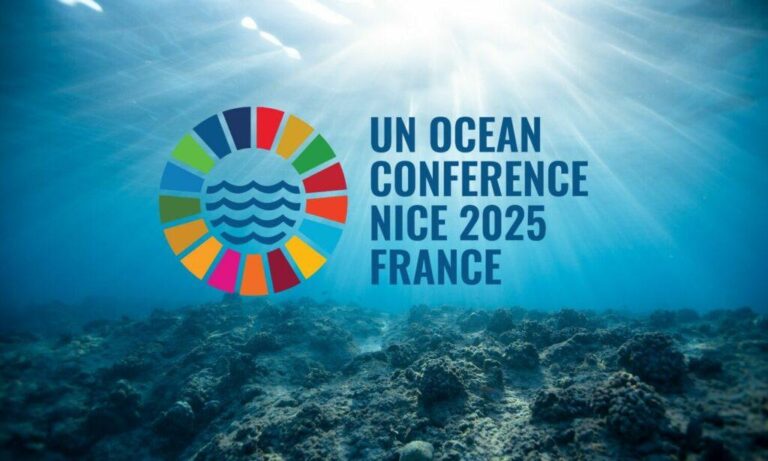The United Nations Ocean Summit has officially commenced in Nice, France, drawing attention to the urgent need for increased marine protections in the face of escalating environmental challenges. As nations gather to discuss strategies for conserving marine biodiversity and combating the adverse effects of climate change, leaders and advocates emphasize the critical role healthy oceans play in sustaining life on Earth. With a backdrop of increasing ocean degradation and overfishing, the summit aims to galvanize global cooperation and commitment to preserving these vital ecosystems. Delegates will forge partnerships, share innovative solutions, and address the pressing necessity of safeguarding our oceans for future generations.
UN Ocean Summit Agenda Focuses on Urgent Marine Protection Measures
As the UN Ocean Summit unfolds in Nice, global leaders and marine experts are uniting to address the pressing threats faced by our oceans. There is an urgent call to implement effective marine protection measures that can safeguard vital ecosystems from the impacts of climate change, pollution, and overfishing. Discussions are expected to emphasize the need for collaborative strategies that bolster marine biodiversity while also promoting sustainable fishing practices. Key proposals include:
- Strengthening Marine Protected Areas (MPAs): Expanding the coverage and effectiveness of MPAs is paramount to preserving crucial habitats.
- International Agreements: Creating binding international agreements aimed at reducing plastic waste and chemical pollutants in marine environments.
- Research Funding: Increasing investment in marine science to better understand oceanic changes and support conservation efforts.
In addition to safeguarding marine habitats, the agenda reflects a commitment to equity and inclusivity in ocean governance. This includes ensuring that local communities, especially those that rely on coastal resources, have a voice in decision-making processes. The summit also highlights successful case studies from around the world, showcasing innovative approaches to marine conservation. A summary of notable initiatives includes:
| Initiative | Description | Location |
|---|---|---|
| Coral Triangle Initiative | Multi-national collaboration to protect marine biodiversity. | Southeast Asia |
| Blue Parks Initiative | Recognition of outstanding marine protected areas. | Global |
| Plastic Pollution Coalition | Campaign to eradicate plastic pollution in oceans. | Worldwide |
Key Stakeholders Emphasize the Role of International Collaboration
During the UN ocean summit in Nice, key stakeholders from various sectors convened to underline the critical importance of international collaboration in marine conservation efforts. Environmental leaders, government representatives, and influential NGOs stressed that safeguarding the world’s oceans requires a unified approach, transcending national borders. The voices of experts were clear: sustainable ocean practices can only be effective through shared knowledge and resources. To foster this collaboration, participants outlined numerous strategies, including:
- Strengthening global agreements on marine protection.
- Facilitating knowledge sharing among nations regarding best practices in ocean management.
- Creating joint initiatives that involve multiple countries in conservation projects.
Moreover, the discussions highlighted the urgent need to engage local communities in conservation efforts. Stakeholders underscored the role of indigenous and coastal populations in providing valuable insights into sustainable practices. By empowering these groups, nations can forge more resilient partnerships that enhance both ecological and economic benefits. A preliminary survey of stakeholder commitments revealed a profound dedication to marine stewardship, as shown in the table below:
| Stakeholder Type | Commitment Level | Primary Focus |
|---|---|---|
| Government | High | Legislation on Marine Protected Areas |
| NGO | Medium | Community Engagement Programs |
| Private Sector | Emerging | Sustainable Fishing Practices |
Innovative Solutions Proposed for Sustainable Fisheries Management
At the UN ocean summit in Nice, a diverse range of innovative strategies was introduced to enhance sustainable fisheries management. Key proposals emphasized the importance of collaborative frameworks among countries to monitor fish stocks and assess ecological impacts. Sustainable fishing practices, such as selective gear technologies and eco-labeling initiatives, aim to minimize bycatch and protect marine biodiversity. Additionally, stakeholders proposed financial incentives to encourage fishermen to adopt sustainable practices, further reinforcing the economic viability of healthy fish populations.
Another focal point was the integration of digital technologies into fisheries management. Advanced data analytics and satellite monitoring systems can provide real-time insights into fishing activities, enabling better regulatory compliance. Workshops and training sessions will also be essential in familiarizing local communities with these tools. Here’s a concise overview of the proposed solutions:
| Solution | Description |
|---|---|
| Collaborative Frameworks | Partnerships among countries for joint monitoring of fish stocks. |
| Selecting Gear Technologies | Tools designed to minimize the capture of non-target species. |
| Financial Incentives | Support to promote the adoption of sustainable practices. |
| Digital Technologies | Utilizing data analytics for enhanced monitoring and compliance. |
Experts Call for Enhanced Ocean Governance and Policy Frameworks
As discussions unfold at the UN ocean summit in Nice, experts are urging for *comprehensive reforms* in ocean governance and policy frameworks. They emphasize the need for innovative approaches to address the escalating threats to marine ecosystems. The call to action is driven by alarming statistics revealing the dramatic decline in marine biodiversity and the pressing consequences of climate change. Key suggestions on the table include:
- Stricter regulation of marine resource exploitation
- Enhanced collaborative efforts among nations
- Integrated ocean management strategies
- Robust funding for ocean research initiatives
Delegates argue that a *multilateral approach* is crucial for fostering sustainability in oceanic environments. The intertwining issues of overfishing, habitat destruction, and pollution require policies that not only prioritize conservation but also engage local communities in stewardship. Expert panelists point out that successful governance hinges on transparent decision-making and the equitable sharing of benefits derived from marine resources. A proposed framework includes:
| Key Areas | Proposed Actions |
|---|---|
| Marine Biodiversity | Establishment of marine protected areas (MPAs) |
| Climate Resilience | Development of adaptive management policies |
| Community Engagement | Promotion of local fishing cooperatives |
Concluding Remarks
As the UN Ocean Summit in Nice concludes, the urgency of global marine conservation has been underscored by leaders and advocates alike. With calls to enhance protections for our oceans resonating through the discussions, participants have emphasized the critical need for immediate action to combat the multifaceted threats facing marine ecosystems. As nations commit to bold initiatives, the summit serves as a pivotal moment in the collective effort to safeguard our oceans for future generations. The world now watches closely, as the commitment to marine health translates into tangible policies and actions in the months and years to come. The preservation of our blue planet depends not only on these promises but on the collaborative will to follow through in lasting ways.




